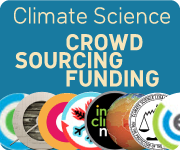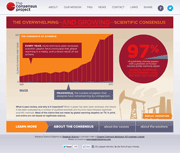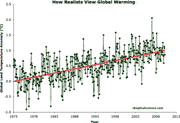Scientists probe newly discovered methane emissions
Posted on 31 October 2022 by greenman3610
This is a re-post from Yale Climate Connections
Yale Climate Connections regular video contributor Peter Sinclair reports on his summer of 2022 field trip to Greenland with three Czech and one American climate scientist. Their goal: to explore a newly identified natural process allowing escape of methane, a powerful climate pollutant, to the atmosphere from rapidly melting ice sheets.
And the riddle they hope to answer: It’s not a question of whether methane is being emitted, but of how much relative to total methane emissions.
The answer, let’s say, is as yet uncertain.
Setting camp at the edge of the ice sheet, three Czech scientists from Charles University in Prague collect samples near a “massive upwelling,” where glacier meltwater, driven down below the surface, erupts with great force.
Their aim was to capture meltwater as close to the source as possible to analyze levels of dissolved methane emitted to ambient air.
Lead scientist Marek Stibal explains that the decay of ancient vegetation, long covered by glacial ice, is thought to be the source of methane. As ice sheet melt accelerates, this methane is being released, and scientists want to understand just how large this source may be.
Stibal adds that “plenty of ice in Greenland is committed to be lost.” He and his colleagues say it’s possible the releases of methane from vegetation newly exposed as ice sheets retreat may be “relatively small compared to all the other big sources of methane.”
“But we can’t be sure,” Stibal concludes, for now leaving to additional research this piece of the methane puzzle and challenges.































 Arguments
Arguments






























Comments